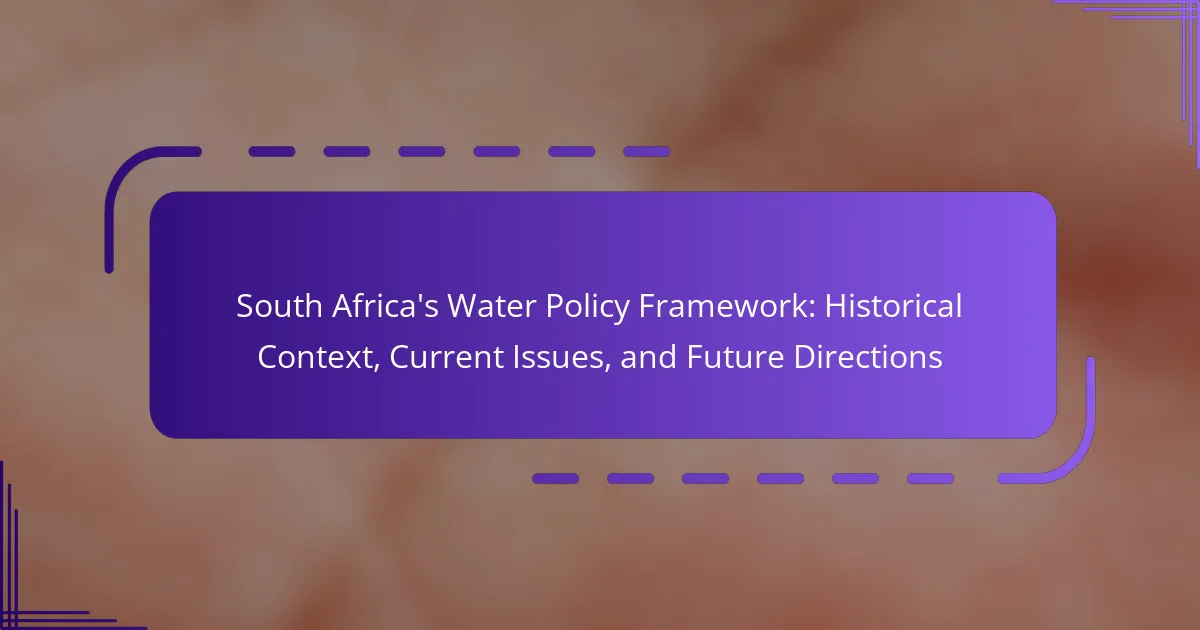South Africa’s Water Policy Framework is a structured set of guidelines designed to manage the country’s water resources effectively. Rooted in the National Water Act of 1998, this framework promotes equitable access to water while emphasizing sustainable use and conservation practices. It incorporates Integrated Water Resource Management (IWRM) principles and addresses critical issues such as […]
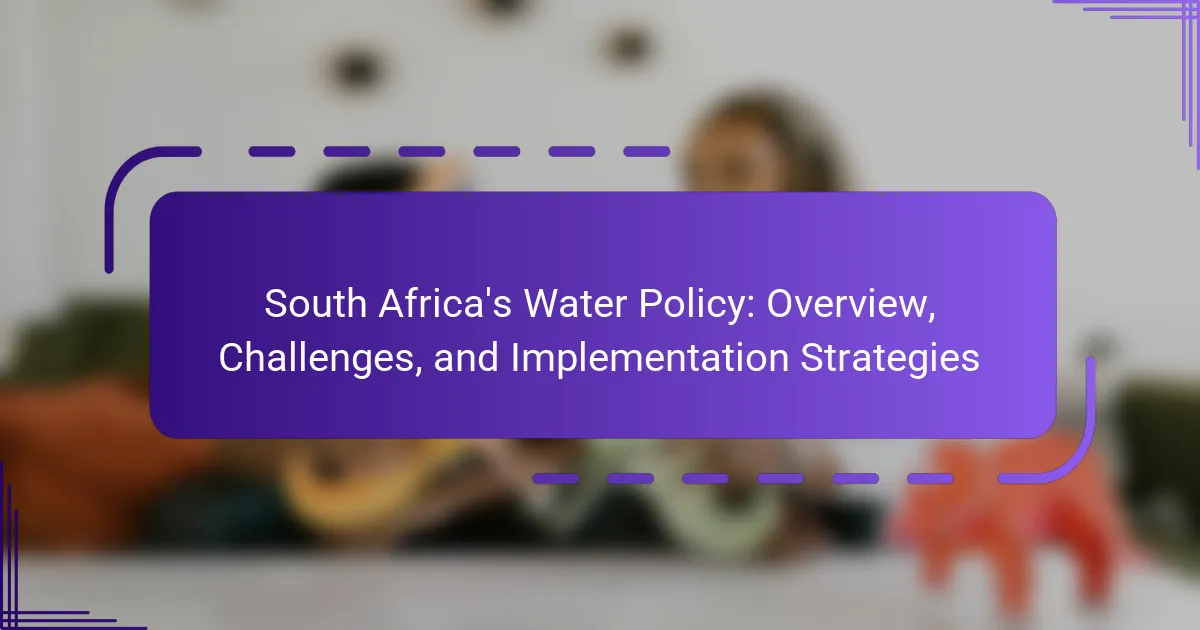
South Africa’s Water Policy: Overview, Challenges, and Implementation Strategies
South Africa’s Water Policy aims to ensure equitable access to water resources while prioritizing sustainable management of this finite resource. Guided by the National Water Act of 1998, the policy emphasizes integrated water resource management and community participation. It addresses historical inequalities in water distribution and aims to protect water resources from pollution and over-extraction. […]
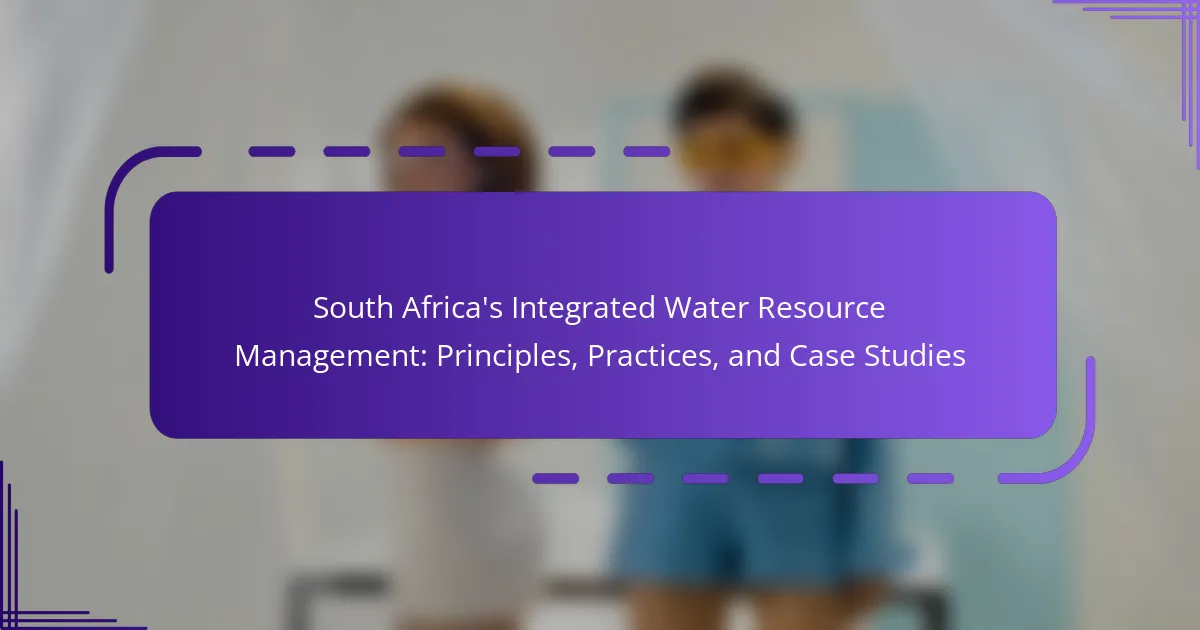
South Africa’s Integrated Water Resource Management: Principles, Practices, and Case Studies
Integrated Water Resource Management (IWRM) in South Africa is a comprehensive strategy aimed at balancing social, economic, and environmental needs related to water resources. Guided by the National Water Act of 1998, IWRM promotes the coordinated management of water, land, and related resources, addressing challenges such as water scarcity and uneven distribution through stakeholder collaboration. […]
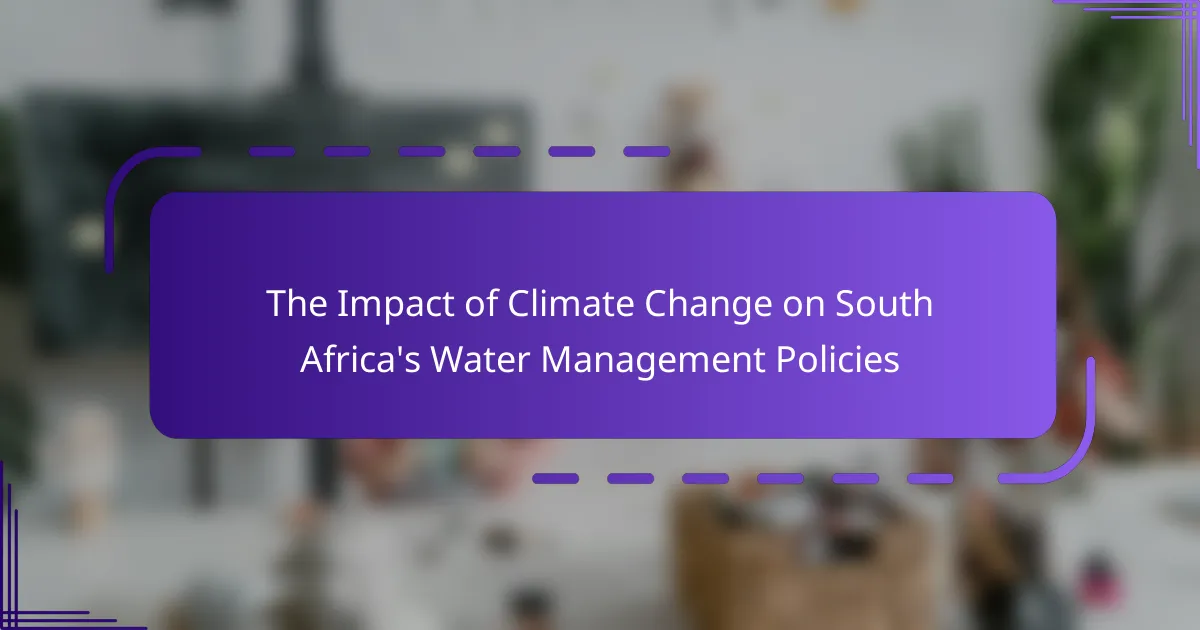
The Impact of Climate Change on South Africa’s Water Management Policies
Climate change is a critical factor influencing South Africa’s water management policies, resulting in increased temperatures and altered rainfall patterns that contribute to water scarcity. This scarcity directly impacts agricultural productivity and urban water supply, prompting government revisions of policies aimed at enhancing water conservation and infrastructure. Key strategies include investing in water recycling, rainwater […]
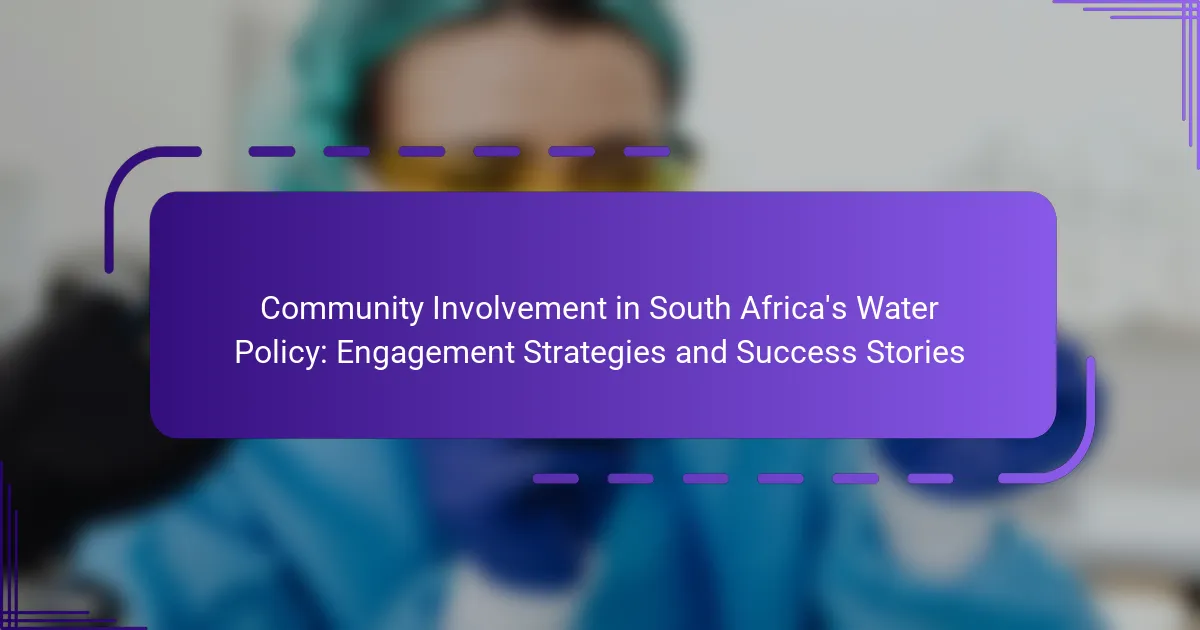
Community Involvement in South Africa’s Water Policy: Engagement Strategies and Success Stories
Community involvement in South Africa’s water policy is the active participation of local communities in the decision-making processes related to water management. This engagement is essential for aligning water policies with the needs of affected populations and enhancing accountability. The South African government, through legislation like the National Water Act of 1998, emphasizes public participation, […]
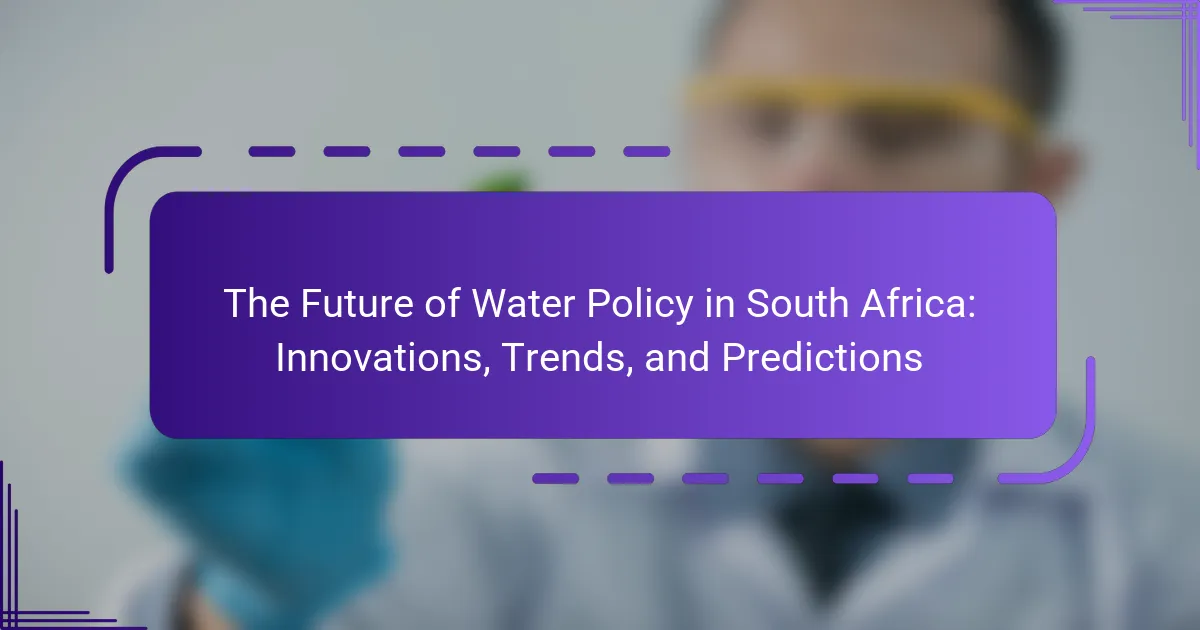
The Future of Water Policy in South Africa: Innovations, Trends, and Predictions
The article focuses on water policy in South Africa, addressing current challenges such as water scarcity, pollution, and aging infrastructure. It highlights the impact of climate change and population growth on water availability, as well as the public health risks posed by contaminated water sources. Innovations in water management, including integrated resource management and technological […]
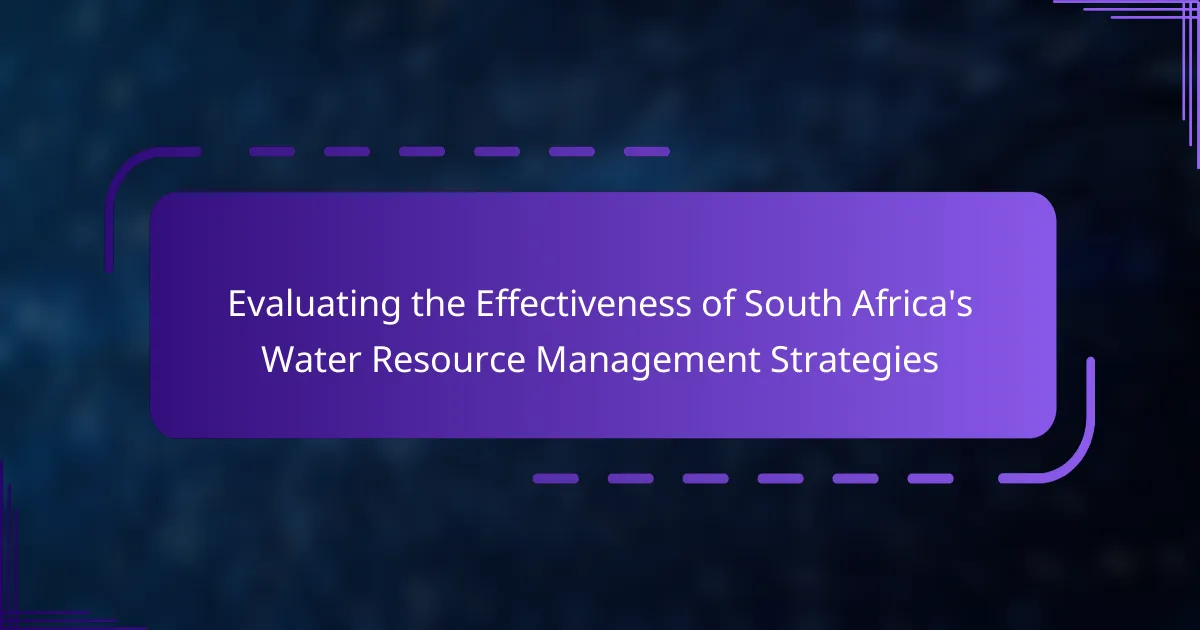
Evaluating the Effectiveness of South Africa’s Water Resource Management Strategies
South Africa’s water resource management strategies primarily encompass integrated water resource management (IWRM) and water conservation initiatives, aimed at addressing water scarcity and improving water quality. The National Water Act of 1998 serves as the foundational framework for these strategies, promoting equitable distribution and sustainable management of water resources. Despite their establishment, challenges such as […]
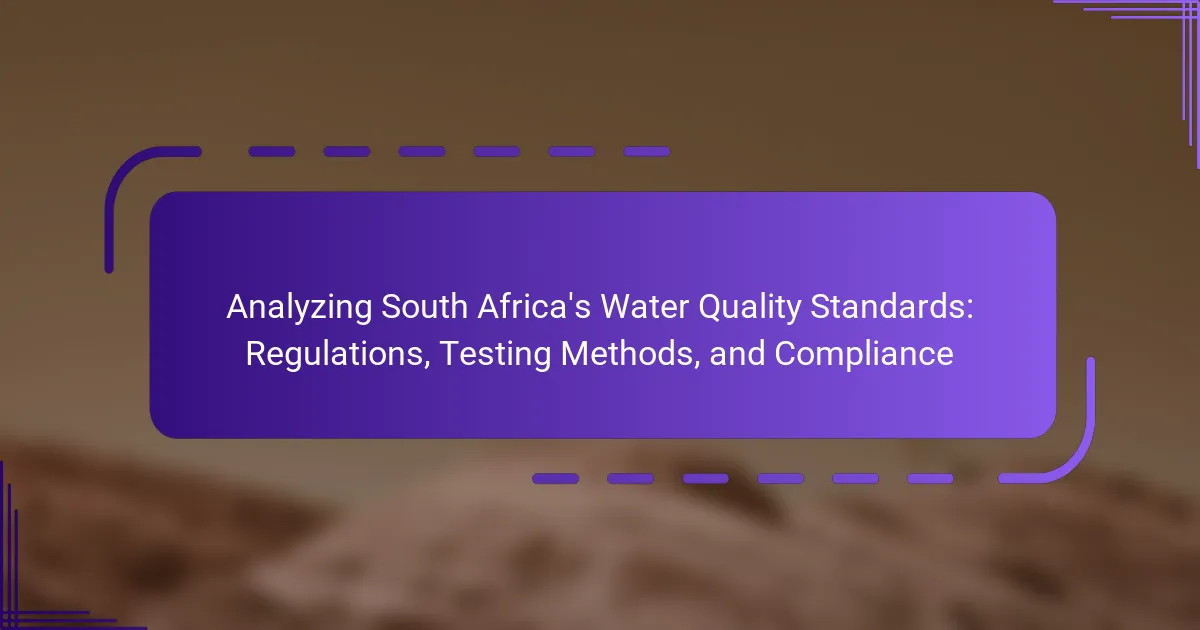
Analyzing South Africa’s Water Quality Standards: Regulations, Testing Methods, and Compliance
South Africa’s Water Quality Standards, established under the National Water Act and enforced by the Department of Water and Sanitation, are crucial for ensuring safe drinking water and ecological sustainability. These standards set limits on contaminants such as bacteria, heavy metals, and chemical substances, with a zero tolerance for E. coli in drinking water. The […]
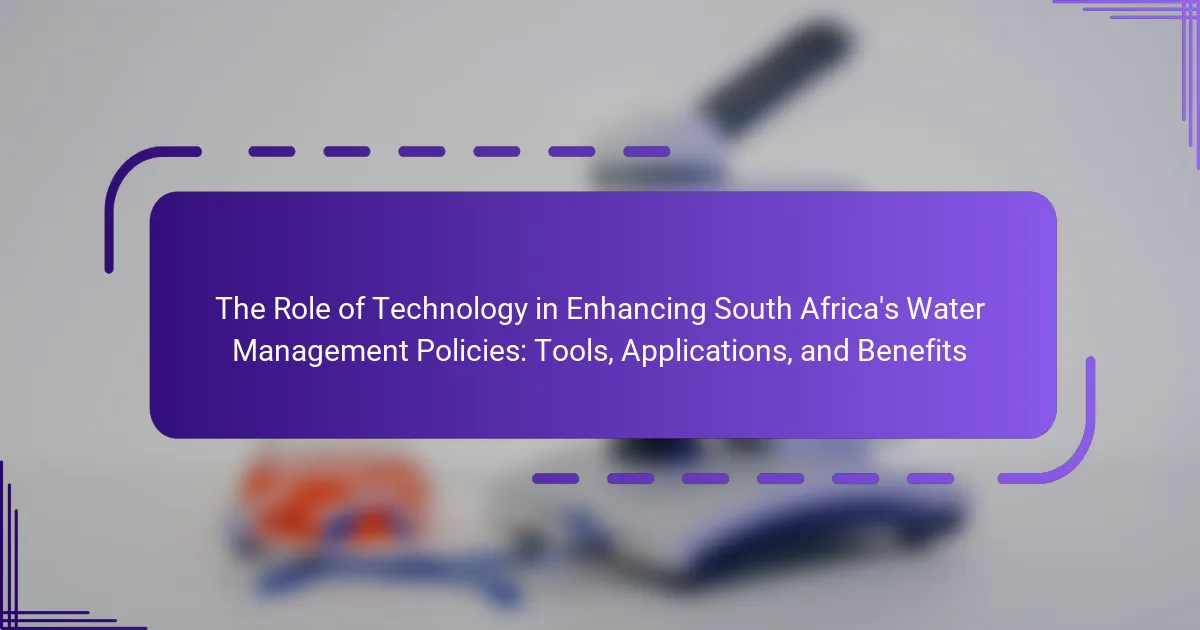
The Role of Technology in Enhancing South Africa’s Water Management Policies: Tools, Applications, and Benefits
Technology significantly enhances South Africa’s water management policies by enabling efficient monitoring and data collection of water resources. Key tools include satellite imagery, Internet of Things (IoT) sensors, Geographic Information Systems (GIS), and decision support systems, which facilitate real-time assessments of water quality and availability. Applications such as predictive analytics and smart irrigation systems optimize […]
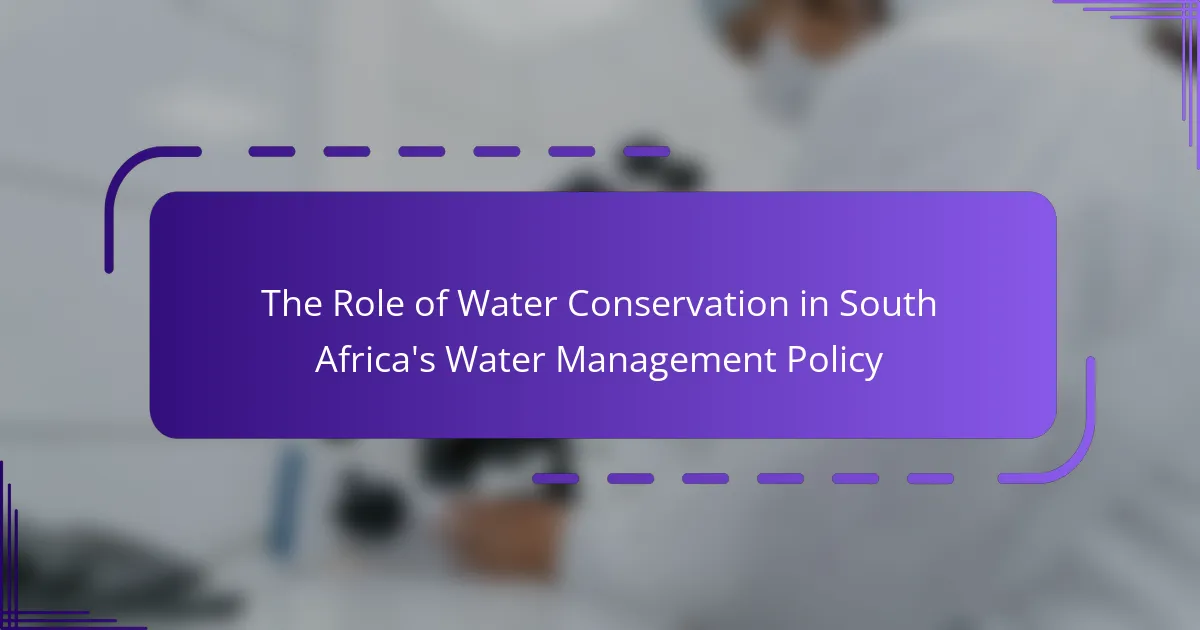
The Role of Water Conservation in South Africa’s Water Management Policy
Water conservation is a key component of South Africa’s water management policy, designed to combat the country’s significant water scarcity and promote sustainable resource usage. The policy emphasizes efficient water use across various sectors and includes initiatives such as rainwater harvesting and wastewater recycling. By focusing on conservation, the policy aims to enhance water security, […]
